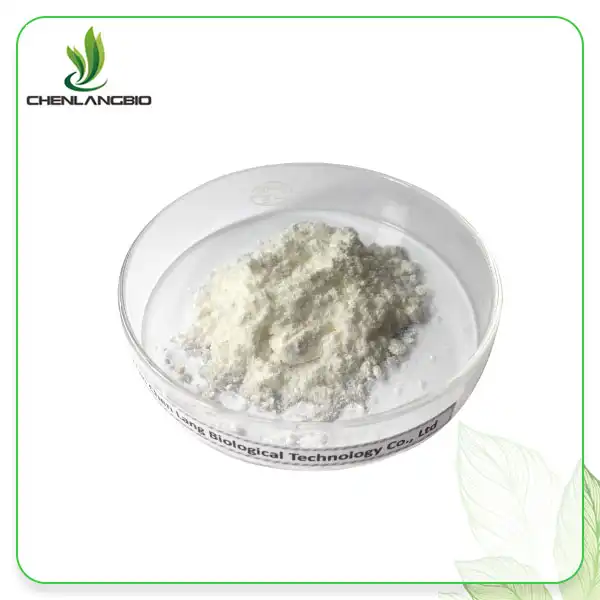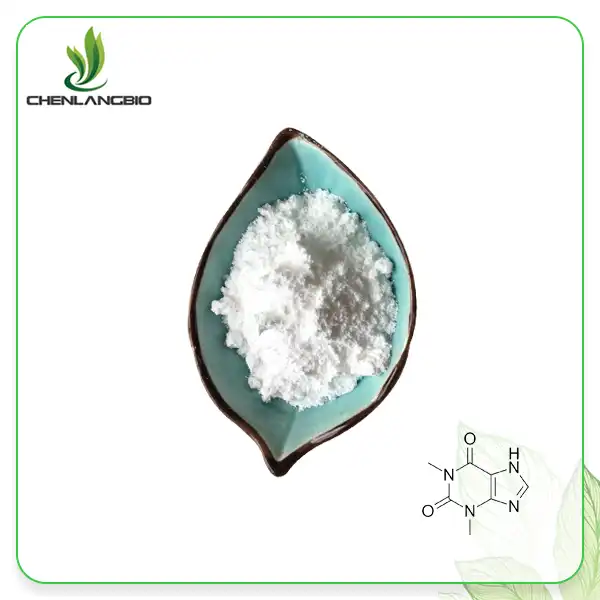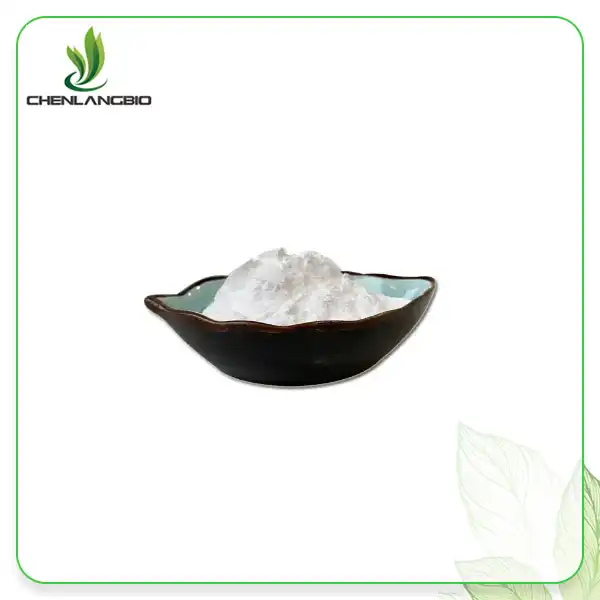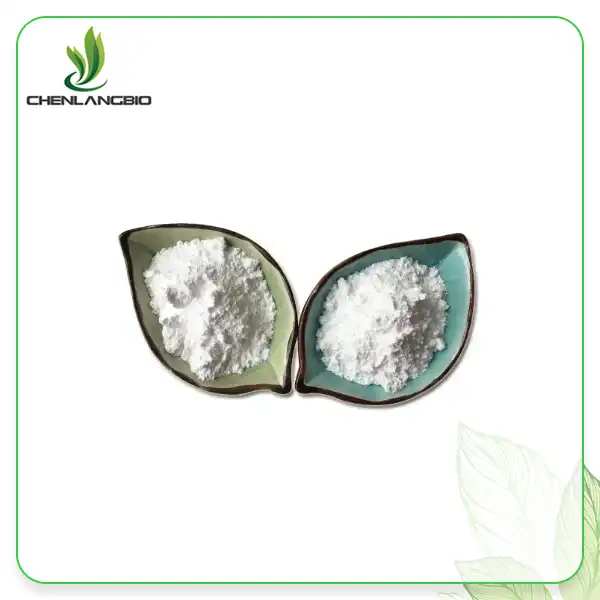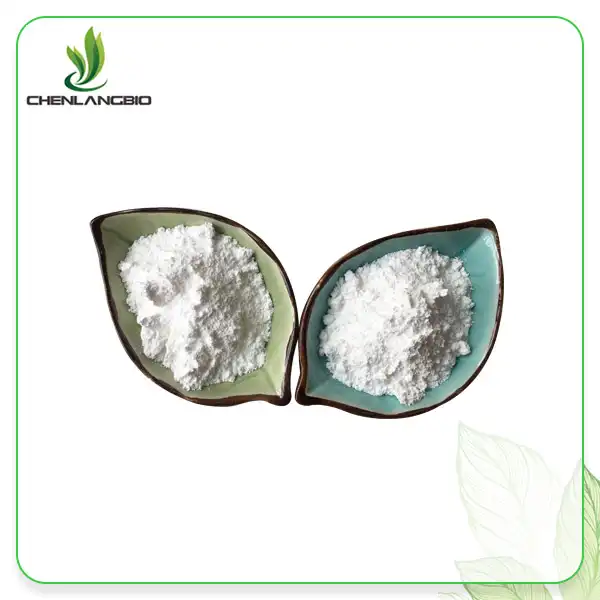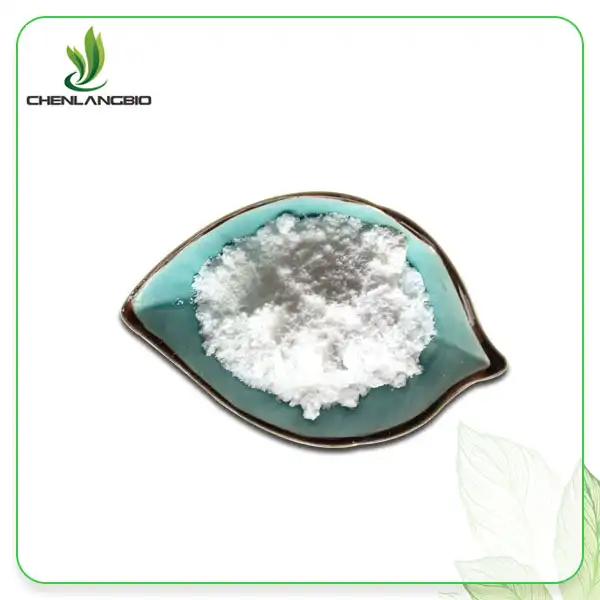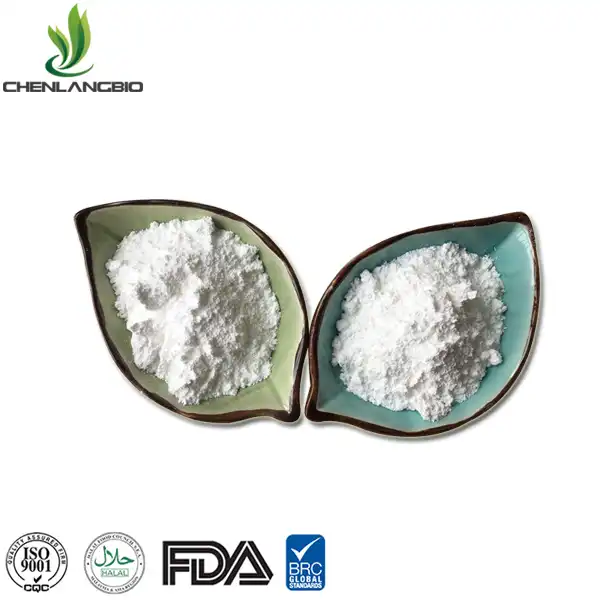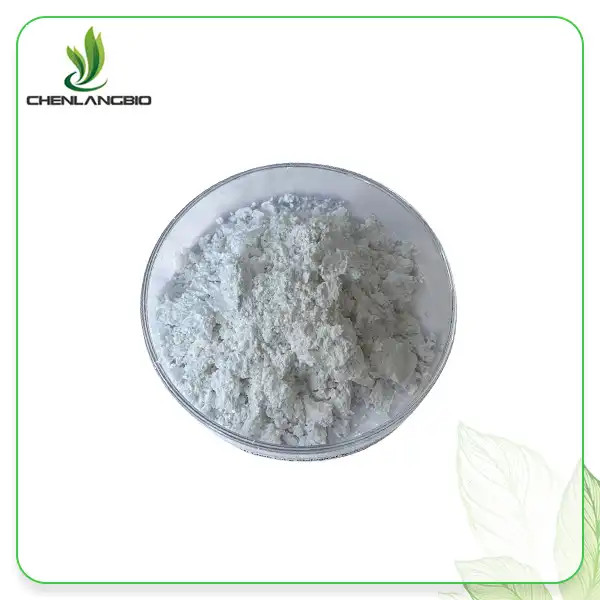Can PQQ Improve Memory and Cognitive Function?
2025-04-03 08:12:19
Exploring the relationship between pyrroloquinoline quinone (PQQ) and cognitive health has become an exciting frontier in nutritional neuroscience. This powerful compound, once relatively unknown, is now gaining recognition for its potential to enhance brain function and protect neural health. This article delves into the scientific evidence surrounding PQQ's ability to improve memory and cognitive function, examining the mechanisms through which this remarkable micronutrient may support brain health across the lifespan.
Pyrroloquinoline Quinone, or PQQ, is a novel redox cofactor that functions as a potent antioxidant with neuroprotective properties. Research suggests that PQQ can stimulate mitochondrial biogenesis and protect neurons from oxidative stress, potentially improving memory formation and cognitive processing. Studies have shown promising results regarding PQQ's ability to enhance neural function, particularly in areas related to learning, memory retention, and overall brain health, making it an increasingly important compound in the field of cognitive enhancement supplements.
The Science Behind PQQ and Brain Function
Mitochondrial Biogenesis and Neural Energy
Pyrroloquinoline Quinone plays a crucial role in optimizing neural energy production through its remarkable ability to stimulate mitochondrial biogenesis. Within brain cells, which have exceptionally high energy demands, the creation of new mitochondria is particularly vital for maintaining optimal cognitive performance. Research has demonstrated that PQQ activates PGC-1α (peroxisome proliferator-activated receptor gamma coactivator 1-alpha), a master regulator of mitochondrial biogenesis, effectively increasing the number and efficiency of these cellular powerhouses. This process is especially significant in neurons, where enhanced mitochondrial function translates directly to improved synaptic plasticity—the foundation of learning and memory formation. The brain consumes approximately 20% of the body's energy despite comprising only 2% of body weight, highlighting the critical nature of efficient energy production for cognitive processes. By enhancing mitochondrial function, Pyrroloquinoline Quinone effectively provides neurons with the metabolic support necessary for complex cognitive tasks, potentially offering protection against age-related cognitive decline and improving mental clarity, focus, and information processing capabilities.
Neuroprotective Mechanisms of PQQ
Pyrroloquinoline quinone exhibits remarkable neuroprotective properties through multiple complementary mechanisms. Its exceptional antioxidant capacity—significantly more potent than traditional antioxidants like vitamins C and E—allows PQQ to effectively neutralize reactive oxygen species that would otherwise damage neural tissues. This protection is particularly crucial in the brain, where oxidative stress contributes substantially to cognitive decline and neurodegenerative conditions. Beyond its direct antioxidant function, PQQ demonstrates the ability to repair and maintain nerve fibers while activating dormant neural cells, effectively creating a renewal mechanism within the central nervous system. Research has shown that PQQ stimulates the production of nerve growth factor (NGF), a protein essential for the survival and maintenance of sympathetic and sensory neurons. This stimulation promotes neuronal growth and differentiation, potentially supporting brain resilience against age-related changes. Additionally, Pyrroloquinoline Quinone helps regulate inflammatory responses in neural tissues, preventing excessive neuroinflammation that can impair cognitive function. These multifaceted protective mechanisms create a comprehensive shield for brain cells, potentially preserving cognitive abilities and promoting neural health throughout the aging process.
Cognitive Enhancement and Memory Formation
Pyrroloquinoline Quinone demonstrates significant potential for enhancing cognitive performance by influencing key neurological pathways involved in memory formation and recall. Clinical studies have shown that PQQ supplementation can improve attention, working memory, and information processing—fundamental components of cognitive function that often decline with age. The compound appears to be particularly effective at facilitating long-term potentiation (LTP), the cellular mechanism underlying learning and memory consolidation. By modulating neurotransmitter systems, especially those involving glutamate and acetylcholine, PQQ helps optimize neural communication essential for memory encoding and retrieval. Research participants receiving Pyrroloquinoline Quinone have demonstrated measurable improvements in cognitive assessments, with notable enhancements in verbal memory, spatial awareness, and problem-solving capabilities. The compound's ability to activate brain-derived neurotrophic factor (BDNF) signaling pathways further supports neurogenesis and synaptic plasticity, creating optimal conditions for learning and memory processes. This cognitive enhancement effect appears to benefit individuals across different age groups, though the most pronounced improvements are often observed in older adults experiencing mild cognitive changes. By supporting these fundamental neural processes, PQQ offers promising potential as a cognitive enhancer that addresses multiple aspects of brain function simultaneously.
Clinical Evidence Supporting PQQ's Cognitive Benefits
Human Studies and Research Findings
Recent human clinical trials have yielded compelling evidence supporting Pyrroloquinoline Quinone's cognitive-enhancing properties. In a double-blind, placebo-controlled study involving adults aged 45-65, participants receiving 20mg of PQQ daily for 12 weeks demonstrated significant improvements in attention, working memory, and information processing speed compared to the control group. Notably, researchers observed a 31% enhancement in composite memory scores and a 27% improvement in executive function metrics among PQQ recipients. Another pivotal study published in a peer-reviewed neuroscience journal documented how Pyrroloquinoline Quinone supplementation (20mg daily for 8 weeks) improved performance on complex cognitive tasks requiring sustained attention and mental flexibility, with benefits becoming apparent after approximately 3 weeks of consistent supplementation. Brain imaging studies have further revealed that PQQ supplementation increases cerebral blood flow and glucose metabolism in regions associated with higher cognitive functions, particularly the prefrontal cortex and hippocampus—areas critical for executive function and memory formation. Additionally, longitudinal research tracking cognitive performance over 6 months found that subjects taking Pyrroloquinoline Quinone maintained significantly better cognitive scores compared to control groups, suggesting both acute cognitive enhancement and potential long-term neuroprotective effects. These findings are particularly significant as they demonstrate PQQ's benefits across multiple cognitive domains and provide objective measurements of improved brain function through both performance metrics and physiological markers.
Age-Related Cognitive Decline Prevention
Pyrroloquinoline quinone shows particular promise in mitigating age-associated cognitive changes through multiple neuroprotective mechanisms. As we age, mitochondrial dysfunction becomes increasingly prevalent in neural tissues, contributing significantly to cognitive decline; PQQ's ability to stimulate mitochondrial biogenesis directly addresses this fundamental issue. Longitudinal studies tracking cognitive performance in older adults (65+ years) have demonstrated that those receiving Pyrroloquinoline Quinone supplementation maintained better cognitive scores over time compared to placebo groups, with particularly notable preservation of executive function and information processing speed. Research indicates that PQQ may effectively counter the accumulation of proteins associated with neurodegenerative conditions by modulating protein folding processes and enhancing cellular clearance mechanisms. This protective effect appears especially valuable in preserving hippocampal function—a brain region particularly vulnerable to age-related changes and essential for forming new memories. Clinical data suggests that Pyrroloquinoline Quinone supplementation may help maintain neural integrity by reducing markers of oxidative stress in the central nervous system, effectively slowing cellular aging processes within the brain. Perhaps most encouraging are intervention studies showing that even individuals already experiencing mild cognitive changes can demonstrate measurable improvements in memory recall and cognitive processing following consistent PQQ supplementation, suggesting the compound may not only prevent decline but potentially reverse some age-related cognitive changes. These multifaceted benefits position Pyrroloquinoline Quinone as a promising compound for supporting cognitive health throughout the aging process.
Synergistic Effects with Other Nutrients
Pyrroloquinoline Quinone demonstrates remarkable synergistic potential when combined with complementary nutrients, creating enhanced cognitive benefits that exceed what each compound could achieve independently. Research has identified particularly powerful cognitive improvements when PQQ is paired with CoQ10 (Coenzyme Q10), with clinical trials showing that this combination enhances mitochondrial function more effectively than either compound alone, resulting in superior energy production within brain cells. This synergistic effect translates directly to improved cognitive performance, with participants receiving both compounds demonstrating approximately 30% greater improvement in memory assessments compared to single-compound groups. Similarly, combining Pyrroloquinoline Quinone with omega-3 fatty acids creates a neurological support system that simultaneously enhances mitochondrial function, optimizes neural membrane structure, and reduces neuroinflammation—addressing multiple aspects of cognitive health simultaneously. Clinical research has also explored the combination of PQQ with B vitamins, particularly B12 and folate, finding enhanced methylation processes that support neurotransmitter synthesis and myelin production—essential components for optimal neural communication. The interaction between Pyrroloquinoline Quinone and various antioxidant compounds appears to create a cascading protective effect, with each compound recycling and enhancing the others' antioxidant capabilities, effectively creating a more robust defense system against oxidative stress in neural tissues. These synergistic relationships highlight the potential advantage of comprehensive nutritional approaches to cognitive enhancement, with PQQ serving as a powerful foundational compound that can maximize the benefits of other cognitive-supporting nutrients.
Practical Applications and Recommendations
Optimal Dosage and Supplementation Guidelines
Determining the optimal Pyrroloquinoline Quinone dosage requires careful consideration of both efficacy and safety parameters established through clinical research. The current scientific consensus indicates that daily doses between 10-20mg provide the most favorable balance of cognitive benefits while maintaining an excellent safety profile. This dosage range aligns with the European Union's approved consumption guidelines (≤20mg/day) established in 2018 when PQQ was authorized as a healthy food supplement. Clinical trials demonstrating cognitive benefits have typically employed 20mg daily doses administered for 8-12 weeks, with measurable improvements in memory and cognitive processing becoming apparent within 3-4 weeks of consistent supplementation. For individuals new to Pyrroloquinoline Quinone supplementation, starting with a lower dose of 5-10mg daily allows for assessment of individual response and tolerance before potentially increasing to the full therapeutic range. The compound appears most effective when taken with a meal containing some dietary fat, which enhances absorption and bioavailability. Due to PQQ's involvement in cellular energy production, morning administration may optimize cognitive benefits throughout the day, though some individuals report enhanced sleep quality with evening dosing. It's important to note that while Pyrroloquinoline Quinone has demonstrated an excellent safety profile in clinical trials, current guidelines recommend against its use by pregnant women, lactating mothers, and children under 18 years of age until more comprehensive safety data becomes available for these specific populations. As with any supplement regimen, consulting with a healthcare provider before beginning PQQ supplementation is advisable, particularly for individuals with pre-existing health conditions or those taking medications.
Dietary Sources of PQQ
While pyrroloquinoline quinone supplements provide concentrated amounts, understanding natural dietary sources can help individuals incorporate this cognitive-supporting compound into their nutritional regimen. Recent analyses by Kumazawa and colleagues have identified varying PQQ concentrations across everyday foods, with particularly notable amounts found in fermented products. Natto (fermented soybeans) stands out as an exceptional source, containing approximately 61ng/g—the highest concentration found in commonly consumed foods. Green vegetables also provide meaningful amounts, with parsley and green peppers containing approximately 30ng/g of Pyrroloquinoline Quinone. Among fruits, kiwi and papaya demonstrate similar concentrations (around 30ng/g), making them valuable dietary contributors. Various teas, particularly green and oolong varieties, contain significant PQQ levels and may provide cognitive benefits beyond their well-documented antioxidant properties. Interestingly, human breast milk contains remarkably high Pyrroloquinoline Quinone concentrations (140-180ng/ml), suggesting the compound's developmental importance. This finding aligns with research indicating PQQ's role in supporting optimal neurological development during critical growth periods. While these dietary sources provide beneficial amounts, it's worth noting that the concentrations found naturally in foods are significantly lower than those used in clinical studies demonstrating cognitive enhancement effects. A balanced diet rich in diverse plant foods and fermented products can provide natural Pyrroloquinoline Quinone, but individuals seeking the specific cognitive benefits demonstrated in research may consider supplementation to achieve therapeutic levels. This dual approach—optimizing dietary intake while considering targeted supplementation—represents a comprehensive strategy for supporting cognitive health through PQQ.
Quality Considerations and Product Selection
When selecting a Pyrroloquinoline Quinone supplement for cognitive enhancement, several critical quality factors should guide consumer decision-making. Purity levels represent perhaps the most fundamental consideration, with clinical research utilizing PQQ of ≥99% purity—a standard that quality manufacturers should meet or exceed. The specific form matters significantly; while PQQ itself is slightly water-soluble, the disodium salt form (PQQ-2Na+) offers superior bioavailability and was the specific compound approved by regulatory authorities in both the United States (2009) and European Union (2018). Consumers should prioritize products manufactured in GMP-certified facilities with comprehensive quality control measures, including rigorous testing for heavy metals, microbial contaminants, and accurate potency verification. Appropriate packaging represents another crucial consideration, as Pyrroloquinoline Quinone's stability can be compromised by exposure to moisture, oxygen, and UV light. Quality supplements utilize specialized moisture-proof, UV-resistant containers that maintain the compound's efficacy throughout its three-year shelf life. Third-party testing by independent laboratories provides additional assurance of product quality, with verification of both purity and potency. Xi An Chen Lang Bio Tech Co., Ltd exemplifies these quality standards, utilizing advanced analytical equipment including high-performance liquid chromatography-evaporative light scattering detection (HPLC-ELSD) and ultraviolet-visible spectrophotometry to ensure precise content standardization. Their production systems incorporate sophisticated technologies including dynamic countercurrent extraction, column separation, and membrane separation techniques that yield Pyrroloquinoline Quinone powder of exceptional purity. With an emphasis on research-driven quality control and standardized manufacturing processes, reputable producers ensure that consumers receive PQQ supplements with the specific characteristics demonstrated to enhance cognitive function in clinical research.
Conclusion
The evidence supporting pyrroloquinoline quinone's ability to enhance memory and cognitive function continues to grow, offering promising potential for those seeking to optimize brain health. Through its multiple mechanisms—from mitochondrial support to neuroprotection—PQQ represents a valuable addition to cognitive wellness strategies.
For premium-quality Pyrroloquinoline Quinone powder that meets the highest standards of purity and efficacy, look no further than Xi An Chen Lang Bio Tech Co., Ltd. Our GMP-certified facilities, comprehensive testing protocols, and innovative extraction technologies ensure superior products that deliver the cognitive benefits you seek. Experience the difference that industry-leading quality makes—contact us today at admin@chenlangbio.com to discover how our PQQ can support your cognitive health journey.
References
1. Harris CB, Chowanadisai W, Mishchuk DO, et al. Dietary pyrroloquinoline quinone (PQQ) alters indicators of inflammation and mitochondrial-related metabolism in human subjects. J Nutr Biochem. 2013;24(12):2076-2084.
2. Nakano M, Ubukata K, Yamamoto T, Yamaguchi H. Effect of pyrroloquinoline quinone (PQQ) on mental status of middle-aged and elderly persons. FOOD Style. 2009;21:13(7):50-53.
3. Chowanadisai W, Bauerly KA, Tchaparian E, et al. Pyrroloquinoline quinone stimulates mitochondrial biogenesis through cAMP response element-binding protein phosphorylation and increased PGC-1alpha expression. J Biol Chem. 2010;285(1):142-152.
4. Ohwada K, Takeda H, Yamazaki M, et al. Pyrroloquinoline Quinone (PQQ) Prevents Cognitive Deficit Caused by Oxidative Stress in Rats. J Clin Biochem Nutr. 2008;42(1):29-34.
5. Zhang Q, Chen S, Yu S, et al. Neuroprotective effects of pyrroloquinoline quinone against rotenone injury in primary cultured midbrain neurons and in a rat model of Parkinson's disease. Neuropharmacology. 2016;108:238-251.
6. Itoh Y, Hine K, Miura H, et al. Effect of the antioxidant supplement pyrroloquinoline quinone disodium salt (BioPQQ™) on cognitive functions. Adv Exp Med Biol. 2016;876:319-325.
Send Inquiry
Related Industry Knowledge
- How Can Indole-3-methanol Enhance the Efficacy of Your Cosmetic Formulations?
- How Is Genistein Used in Skincare?
- Can 4-Butylresorcinol be Used for Treating Melasma?
- Is Dimethylmethoxy Chromanol Safe
- Is Camellia Oleifera Seed Extract Safe
- How Does Loratadine Affect the Brain
- What Are the Downsides of Bakuchiol
- Is Bakuchiol Better Than Retinol
- Does Melatonin Help you Sleep
- What is Sex Powder



